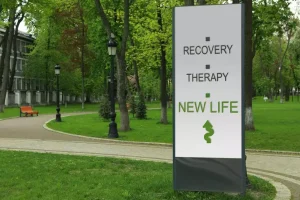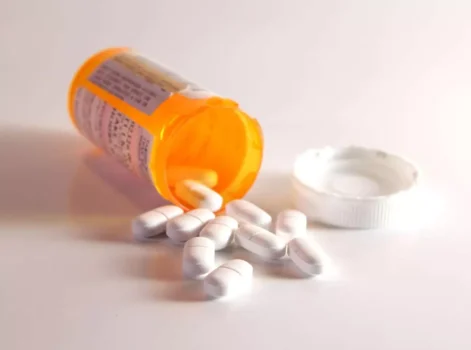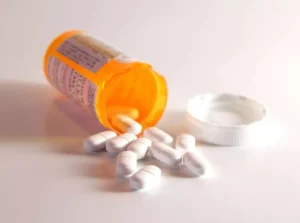
Dehydration is a biggie when it comes to dry skin, puffiness, and management of skin conditions like psoriasis or rosacea. Alcoholic face is a broad way to describe facial changes from excessive drinking. Redness, discoloration, and a puffy face are all obvious signs that it amphetamine addiction treatment may be time to cut back on alcohol. While cold compresses are generally recommended for reducing swelling, alternating with a warm compress can help promote blood flow and healing in some cases. However, avoid using a warm compress if the lip has an open wound or broken skin. For example, if a person has a swollen lip due to cellulitis, they will require antibiotics.

Swelling caused by use of an ace inhibitor
If you experience persistent or severe acne on or around the lips, consult with a dermatologist for personalized treatment options. If a medication is suspected to be causing lip swelling, consult a healthcare provider. They can assess symptoms, adjust dosage, or recommend alternative medications. Do not stop taking prescribed medications without first consulting a healthcare provider. Increase fluid intake during intense physical activity or in hot climates, and limit consumption of diuretic beverages. The experts at this alcohol rehab center will get to the root of the problem and develop specialized solutions that guide the client to become their best self.
Bee Pollen: 16 Health Benefits, Risks and How to Use it

The liver converts ethanol to acetaldehyde, and since this causes cell damage, another aldehyde dehydrogenase 2 (ALDH2) converts it to non-toxic acetic acid 13. Alcohol allergic symptoms are pronounced in those of Asian descent, individuals allergic to grains, and those with asthma, hay fever, or Hodgkin’s Lymphoma 5. This is because alcohol increases permeability of the gut wall – thus allowing greater absorption of food to which a sensitivity exists. Allergic responses to alcohol itself, differ from flushing, irritation, or intolerance to alcohol 2. Sign up to our newsletter to get more articles like this delivered straight to your inbox. When deciding whether to make a doctor’s appointment, go to the emergency room, or just try some small changes at home, consider the following.
Weight Gain and Fluid Retention
This list does not constitute medical advice and may not accurately represent what you have. Anaphylaxis is a life threatening condition that involves a series of symptoms, such as a rash, low pulse, and shock. “Drinking large amounts of alcohol increases sodium levels, which causes you to retain more fluid,” Miles says. “That excess sodium and fluid often accumulate in the tissues in your hands, feet and face.” More significant changes in skin tone or a yellowing skin tone could be a sign of jaundice and progressing liver damage or hepatitis. Binge drinking is defined as 4 or more drinks for women or 5 or more drinks for men on one occasion.
- Alcohol allergy symptoms can range from mild, such as an itchy mouth or eyes, to severe, including vomiting or anaphylaxis.
- After all, people develop alcohol addictions for a number of varying reasons, and they also heal in different ways.
- Fortunately, there is a way out of this tragic quagmire of alcohol addiction.
Alcohol face swelling may seem harmless, but it can be an indication of a more serious health issue. Muse Treatment is a professional treatment center that offers comprehensive support for individuals dealing with alcohol-related facial swelling through both medical and holistic approaches. If the allergic reaction is more severe, people may require epinephrine, also known as an EpiPen. A person with severe allergies should carry one with them at all times, in case of a serious allergic reaction. If a person thinks they have an alcohol allergy, they should eliminate alcohol from their diet and consult with a healthcare professional. Symptoms are more likely to be a reaction to the ingredients in a drink, or the alcohol causing other types of allergies to worsen.
- In fact, research has revealed that almost 25% of drinkers show signs of alcohol intolerance.
- An alcohol allergy is a rare toxic reaction to alcohol that can be fatal in rare cases.
- To manage acne and pimples on the lips, keep the area clean and avoid picking or squeezing the blemishes, as this can lead to infection and scarring.
- A salivary duct stone is the most common disorder of the salivary glands (where you make spit).
- Cellulitis is a bacterial infection that enters the deeper layers of the skin through a wound or abrasion.

Oral allergy syndrome is an allergic reaction to uncooked foods, such as fruits, vegetables, nuts, and seeds. It occurs due to an allergy to pollen on the food, causing a reaction in the mouth. It may cause the lips to swell where the food has come into contact with the skin. Our Los Angeles alcohol treatment center provides medically supervised detoxification programs that safely manage withdrawal symptoms while addressing fluid retention issues.

One of the most important facts to know is that alcohol will dehydrate you. As a result, the body hangs onto whatever fluids it can — often causing the body tissue in the abdominal area to appear bloated. When we drink alcohol, it’s important to note that the production of stomach acids is often halted. This means that food just hangs out in the stomach instead of moving through the system and being metabolized. Because alcoholic beverages are often carbonated, perhaps it’s not a surprise that this double whammy can contribute to bloating alcohol allergy for beer and champagne drinkers alike. However, a person should seek medical advice when the swelling does not improve, comes back, or develops alongside severe symptoms, such as difficulty breathing.
- If you just want to cut back on your drinking or are sober curious, find ways to have fun and hang out with your friends that don’t include drinking.
- A person should seek advice from a doctor if bleeding from lip wounds does not stop or if an injury is deep, covers a large area, or shows signs of infection.
- Alcohol intolerance occurs when the body lacks the proper enzymes to metabolise alcohol and its substrates 11.
- Individuals react to substances in alcohol, like sulphites or histamine, rather than alcohol itself 2.
- Most of us have experienced the headache and hangover effects after drinking too much alcohol — but it affects your body in other ways, too.
Injury
This is due to the process of vasodilation — the blood vessels widening. However, for those who veer into alcoholism, their blood vessels may not rebound as fast, leading to a more prolonged red-faced appearance. Spider veins and broken capillaries are common in individuals who drink heavily, especially as blood pressure rises, contributing to the visible signs on their skin. In addition to puffiness, alcohol can also cause facial redness due to vasodilation, where blood vessels widen, creating a flushed appearance. This redness, combined with fluid retention, can significantly alter your facial appearance after drinking.
- All throughout the day, our bodies regulate themselves to ensure a proper balance of fluids.
- A severe allergic reaction can cause anaphylaxis, which is a medical emergency.
- Mild symptoms may be treated with over-the-counter medication or an EpiPen can be administered for more severe acute episodes such as anaphylactic shock.
- Symptoms of the disease vary and may include dry mouth and increased thirst, abdominal pain and tenderness, fatigue, jaundice, nausea, loss of appetite and weight loss.
- You can experience wheezing, shortness of breath, and coughing fits because of this, says Dr. Glatter.
Is going red a sign you’re allergic to alcohol?
Alcohol intolerance is a genetic condition where an individual’s digestive system cannot properly break down the substance. Alcohol allergy symptoms can range from mild, such as an itchy mouth or eyes, to severe, including vomiting or anaphylaxis. An alcohol allergy occurs when the immune system overreacts to alcohol entering the body. We will also look at what causes alcohol allergies and review the differences between alcohol allergy and intolerance. Now that you’re equipped with the knowledge to tell whether you’re allergic to, intolerant of alcohol or neither, you’re probably wondering, “what can I drink if I’m allergic to alcohol?
At-Risk Groups For Ethanol Allergy
You can get rid of puffy face from alcohol by drinking water, getting plenty of rest, and applying a cold compress to puffy areas. Alcohol flush is a type of alcohol intolerance that happens because of an enzyme mutation in the body. People who experience this side effect have a mutation of aldehyde dehydrogenase 2 (ALDH2), a detoxifying acetaldehyde. Alcoholic face is a series of obvious facial changes from excessive alcohol use. A red face, puffiness, and changes in the look and feel of your skin are all physical signs of too much alcohol.